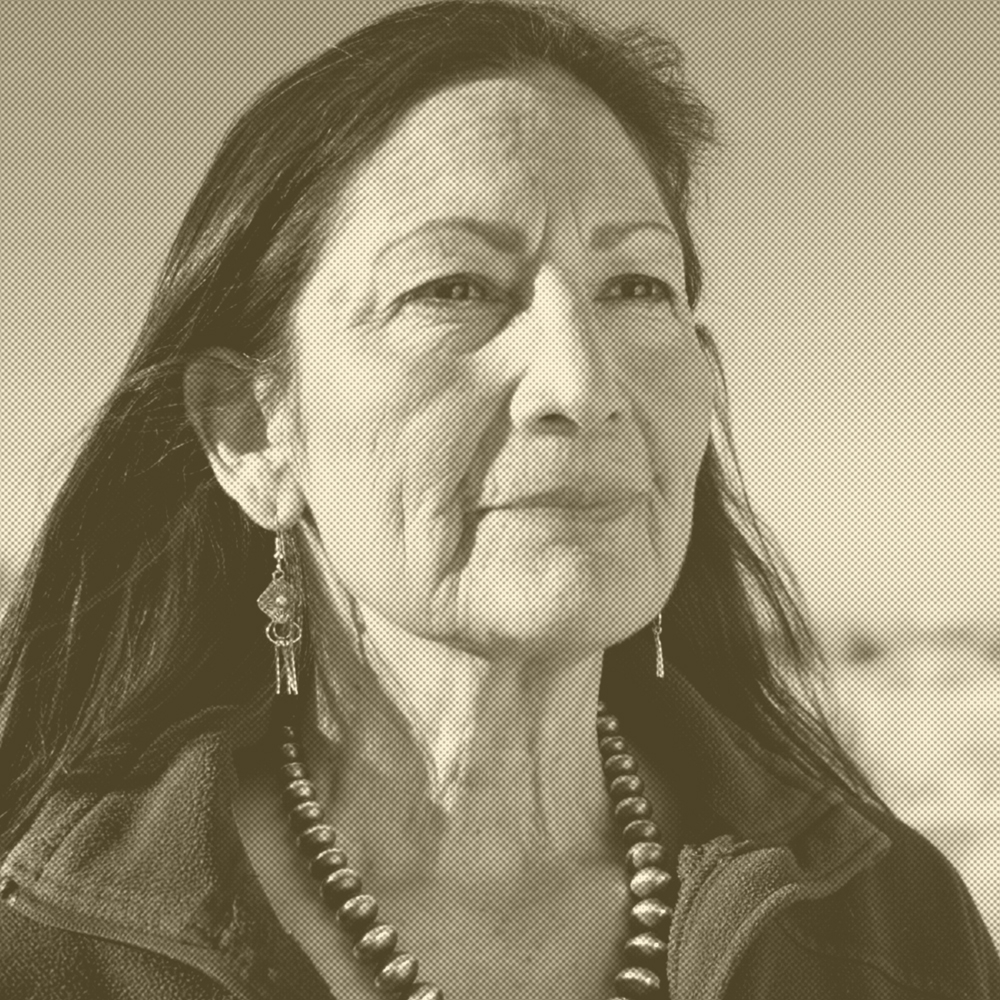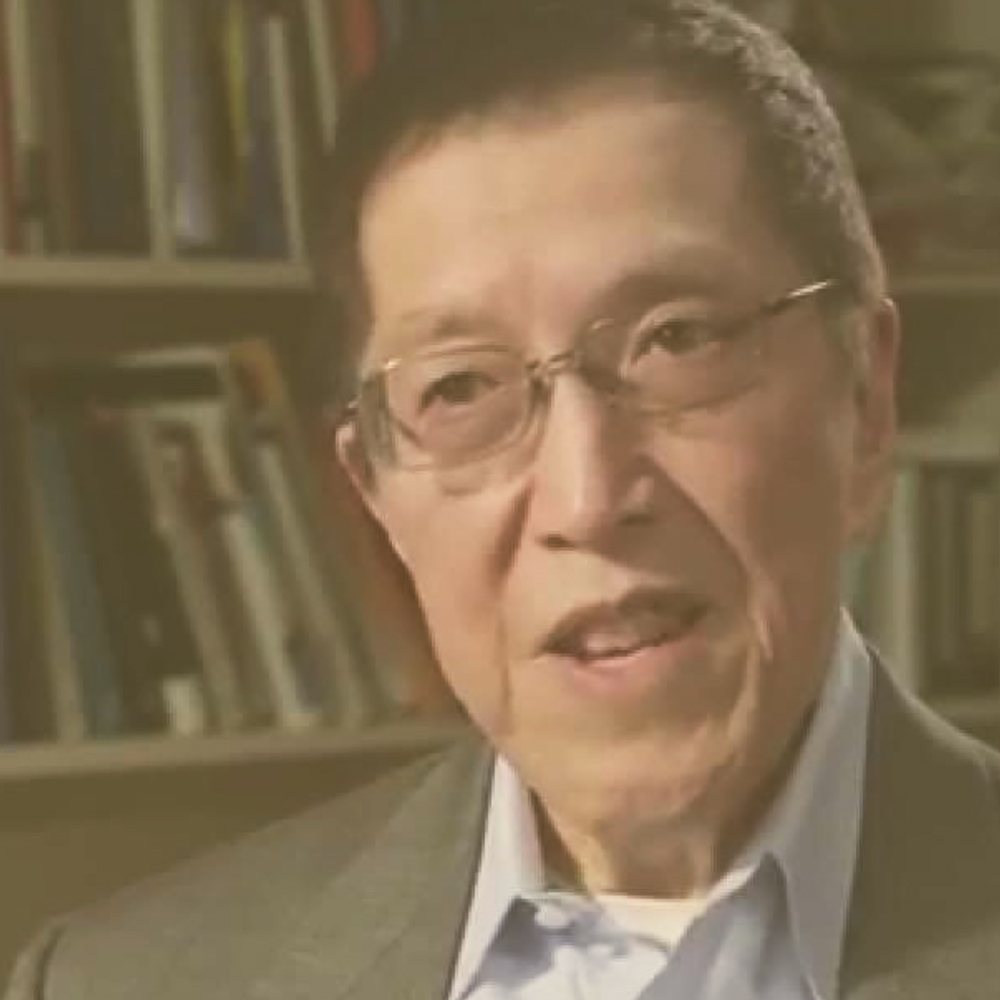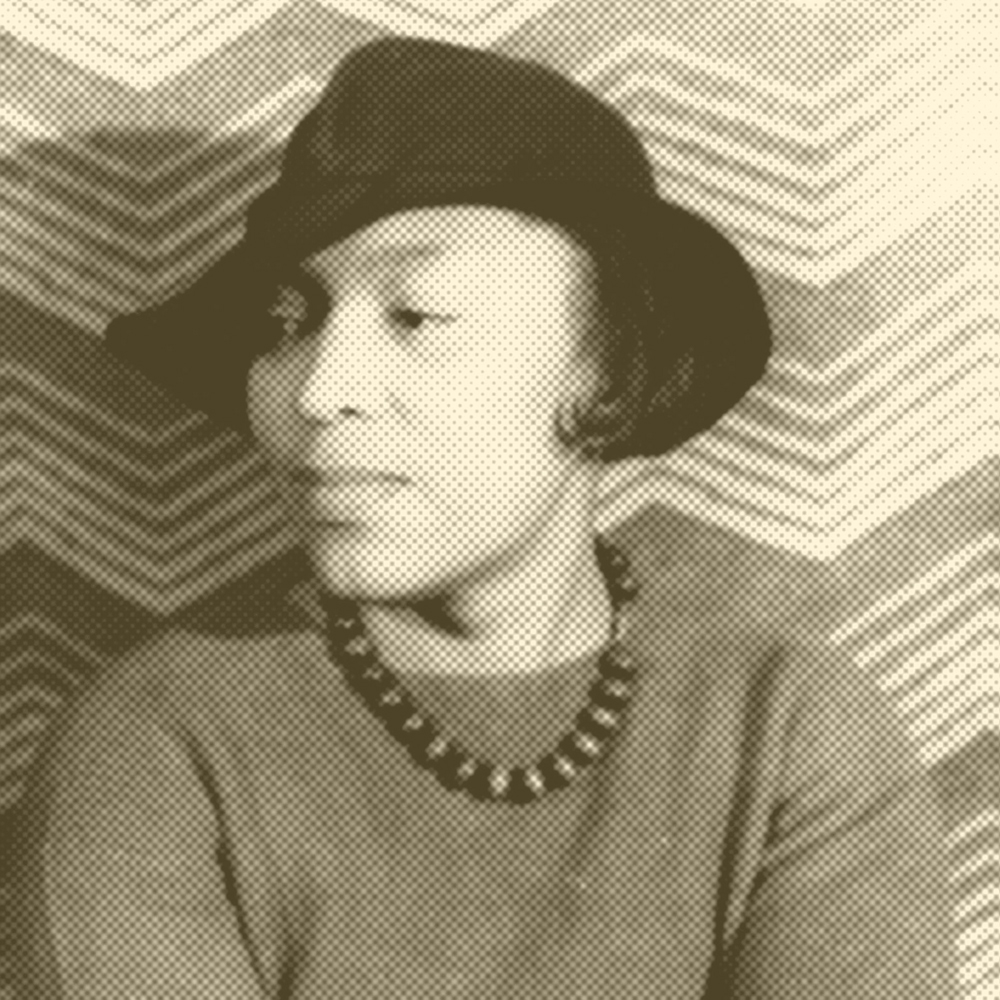|
|
Posted By Nicki Leone,
Sunday, May 26, 2024
Updated: Saturday, May 18, 2024
|
DAY 21: Reflection on Week Three, Looking Ahead to the Future
 "No one becomes ‘not racist,’ despite a tendency by Americans to identify themselves that way. We can only strive to be ‘anti-racist’ on a daily basis, to continually rededicate ourselves to the lifelong task of overcoming our country’s racist heritage." - Ibram X. Kendi "No one becomes ‘not racist,’ despite a tendency by Americans to identify themselves that way. We can only strive to be ‘anti-racist’ on a daily basis, to continually rededicate ourselves to the lifelong task of overcoming our country’s racist heritage." - Ibram X. Kendi

Today’s prompt builds on yesterday’s reflection about how the Challenge has guided you to think and act differently, perhaps more boldly, on this journey of racial equity and justice.
How will you put any of your new commitments into action, starting as soon as Monday? What do you need to do so? Do you have what you need, or can you organize it into being, perhaps with help from others?
There is work to do on your own, but much of the change we need will happen in collaboration with others as well. Looking back at past prompts, one of the first suggestions we often make under the “ACT” section is “Reach out to a friend, family member, or colleague to have this conversation.” Who are your potential accomplices at work, at home, or in your community? In the greater book industry? We are in this together.
Commit to anti-racist reflection and action as an ongoing practice, a way to chronicle the year ahead through writing, drawing, music, or some other expression. Choose something that will work for you so that you can continue to reflect and integrate your learning from this Challenge, find opportunities for healing if needed and also see how your dreams for the future can begin to unfold. Let your own “garden” for justice blossom and extend across boundaries!
From SIBA: Thank you so much for being present and participating in this 21-Day Racial Equity Challenge. Please feel free to share this with your staff and colleagues. May we all continue our work together as anti-racists to create positive change in our industry, our communities, and our world.
Author Photo Credit: Courtesy American University by Jeff Watts | Excerpted from Words of Change: Anti-Racism by permission of Sasquatch Books. Copyright 2020 By Kenyra Rankin. All rights reserved.
SIBA thanks its generous sponsors, who have made the 21-Day Racial Equity Challenge possible:

Many of the quotes used in the Challenge are excerpted from Words of Change: Anti-Racism by permission of Sasquatch Books. Copyright 2020 By Kenyra Rankin. All rights reserved.
Although SIBA has modified when appropriate for a bookseller audience, the majority of prompts and resources come directly from the 21-Day Racial Equity Habit Building Challenge created by Food Solutions New England (FSNE). We are so grateful for their extraordinary work creating this program and making it available to other organizations.
This post has not been tagged.
Permalink
| Comments (0)
|
|
|
Posted By Nicki Leone,
Saturday, May 25, 2024
Updated: Saturday, May 18, 2024
|
DAY 20: Reflection on Week Three
 ""Strong communities are born out of individuals being their best selves" - Leanne Betasamosake Simpson ""Strong communities are born out of individuals being their best selves" - Leanne Betasamosake Simpson

What are your main takeaways from this year’s Challenge? Where are you now compared to before you started? How do you feel? What new knowledge or insights do you have? What hopes?
Reflecting back on these three weeks, select one or two prompts that really resonated with you and revisit them. Journal on why they have been highlights or piqued your interest, and then think about ways to share them with friends or co-workers. What opportunities might this open up?
Yesterday: Equitable & Liberating Forms of Bookselling
Author Photo Credit: Nadya Kwandibens, Red Works Photography | Quote from Words of Change: Anti-Racism by permission of Sasquatch Books. Copyright 2020 By Kenyra Rankin. All rights reserved.
SIBA thanks its generous sponsors, who have made the 21-Day Racial Equity Challenge possible:

Many of the quotes used in the Challenge are excerpted from Words of Change: Anti-Racism by permission of Sasquatch Books. Copyright 2020 By Kenyra Rankin. All rights reserved.
Although SIBA has modified when appropriate for a bookseller audience, the majority of prompts and resources come directly from the 21-Day Racial Equity Habit Building Challenge created by Food Solutions New England (FSNE). We are so grateful for their extraordinary work creating this program and making it available to other organizations.
This post has not been tagged.
Permalink
| Comments (0)
|
|
|
Posted By Nicki Leone,
Friday, May 24, 2024
Updated: Friday, May 17, 2024
|
DAY 19: New Patterns, New Vision
 "Racism will disappear when it’s [...] no longer profitable and no longer psychologically useful...If you take racism away from certain people—I mean vitriolic racists as well as the sort of social racist—if you take that away, they may have to face something really terrible-misery, self-misery, and deep pain about who they are. It’s just easier to say, ‘That one over there is the cause of all my problems." - Toni Morrison "Racism will disappear when it’s [...] no longer profitable and no longer psychologically useful...If you take racism away from certain people—I mean vitriolic racists as well as the sort of social racist—if you take that away, they may have to face something really terrible-misery, self-misery, and deep pain about who they are. It’s just easier to say, ‘That one over there is the cause of all my problems." - Toni Morrison

In her book Emergent Strategy, adrienne maree brown writes that we are engaged in an “imagination battle,” that the current conditions are the result of someone’s imagination, a de-humanizing and domination-oriented view. There are so many other alternatives, if we would be bold, broaden our view, and band together with one another to create new living and life-affirming stories. There is a growing sense that these times call us to live more concertedly and pursue better ways of being and doing, ways that are just and regenerative of patterns of equitable well-being.
In Race and the Cosmos, Barbara A Holmes appeals to all of us to expand our views with the help of science and cosmology so that we can pull from a wider sense of who we are and could be. Watch this short video meditation (3 min) from Dr. Holmes offered by the Center for Action and Contemplation.
In addition, we invite you to watch two short segments of this video from a talk given by Penobscot educator, author, and attorney Sherri Mitchell (Weh’na Ha’mu Kwasset) on her book Sacred Instructions: Indigenous Wisdom for Living Spirit-Based Change (start at 19:35 and end at 24:12; then start at 29:12 and end at 33:02).
Lastly, watch the 2-minute video embedded on this webpage on “Bridging - Towards A Society Built on Belonging” from the Othering & Belonging Institute.

-
As you consider systems, including organizations and communities, that work for everyone (characterized by equitable belonging and well-being), what comes to mind and heart?
-
Have you had even small glimpses of that future in a moment or interaction? How could that be nurtured?

-
Reach out to a friend, family member, or colleague to have this conversation. What is their imagined world? How can we encourage and support the imaginations of others?
-
Engage your organization and/or your community (personal or greater) in an “imagination conversation." See if you can weave “opportunity narratives” to counter the narratives of fear that are out there.
More Resources
Yesterday: Sovereignty
Tomorrow: Reflecting on Week Three
Author Photo Credit: Katy Grannan| Excerpted from Words of Change: Anti-Racism by permission of Sasquatch Books. Copyright 2020 By Kenyra Rankin. All rights reserved.
SIBA thanks its generous sponsors, who have made the 21-Day Racial Equity Challenge possible:

Many of the quotes used in the Challenge are excerpted from Words of Change: Anti-Racism by permission of Sasquatch Books. Copyright 2020 By Kenyra Rankin. All rights reserved.
Although SIBA has modified when appropriate for a bookseller audience, the majority of prompts and resources come directly from the 21-Day Racial Equity Habit Building Challenge created by Food Solutions New England (FSNE). We are so grateful for their extraordinary work creating this program and making it available to other organizations.
This post has not been tagged.
Permalink
| Comments (0)
|
|
|
Posted By Nicki Leone,
Thursday, May 23, 2024
Updated: Friday, May 17, 2024
|
DAY 18: Sovereignty
 "There is no anti-racist certification class. It’s a set of socioeconomic traps and cultural values that are fired up every time we interact with the world. It is a thing you have to keep scooping out of the boat of your life to keep from drowning in it. I know it’s hard work, but it’s the price you pay for owning everything." - Scott Woods "There is no anti-racist certification class. It’s a set of socioeconomic traps and cultural values that are fired up every time we interact with the world. It is a thing you have to keep scooping out of the boat of your life to keep from drowning in it. I know it’s hard work, but it’s the price you pay for owning everything." - Scott Woods

Equity within fundamentally dehumanizing systems is not the goal. Rather, equity is tied to “liberation” (from racism, othering, white supremacy, patriarchy, extractive forms of governance, and economics) when it lifts up sovereignty and self-determination. Sovereignty in the context of liberation from racism and white supremacy is based on the experience, needs, and aspirations of those BIPOC communities who are marginalized in the current system. It focuses on power, access, and control for those to whom it has been denied. And built on truthful and authentic healing, solidarity, and liberation for people (verified by those who have been oppressed)

-
What systems of governance in the bookselling world are you a part of, and what and who do these serve?
-
Have you read their governance policies? Are they anti-racist?
-
Are those in charge of governance modeling diversity?

Trade organizations like the American Booksellers Association and the Southern Independent Booksellers Alliance have begun developing anti-racist governance practices. Those policies can serve as models that may be applied to your own business, as well as any local associations you belong to. Small business alliances, Main Street economic development associations, and local Chambers of Commerce are all confronting these issues. Be a voice for implementing anti-racist governance practices in your local business alliances.
More Resources
Yesterday: Reparations
Tomorrow: New Patterns, New Vision
Author Photo Credit: Brick Cave Media | Excerpted from Words of Change: Anti-Racism by permission of Sasquatch Books. Copyright 2020 By Kenyra Rankin. All rights reserved.
SIBA thanks its generous sponsors, who have made the 21-Day Racial Equity Challenge possible:

Many of the quotes used in the Challenge are excerpted from Words of Change: Anti-Racism by permission of Sasquatch Books. Copyright 2020 By Kenyra Rankin. All rights reserved.
Although SIBA has modified when appropriate for a bookseller audience, the majority of prompts and resources come directly from the 21-Day Racial Equity Habit Building Challenge created by Food Solutions New England (FSNE). We are so grateful for their extraordinary work creating this program and making it available to other organizations.
This post has not been tagged.
Permalink
| Comments (0)
|
|
|
Posted By Nicki Leone,
Wednesday, May 22, 2024
Updated: Friday, May 17, 2024
|
DAY 17: Reparations
 "If you stick a knife in my back nine inches and pull it out six inches, there's no progress. If you pull it all the way out that's not progress. Progress is healing the wound that the blow made. And they haven't even pulled the knife out much less heal the wound. They won't even admit the knife is there." - Malcolm X "If you stick a knife in my back nine inches and pull it out six inches, there's no progress. If you pull it all the way out that's not progress. Progress is healing the wound that the blow made. And they haven't even pulled the knife out much less heal the wound. They won't even admit the knife is there." - Malcolm X

The National Black Food and Justice Alliance, along with growing numbers of regional and local groups, including white accomplices, is calling for reparations of land and resources to Black and Indigenous people to account for decades of extracted wealth. For more on the history of, and some of the numbers associated with, the economic damage in the African American community, see this infographic.
The US Government has settled a few lawsuits brought by American Indian tribes for mismanaging natural resources and other tribal assets. This has been a very slow process and many recognize that this has not accounted fully for the economic damage done in those communities. Clearly, there is much more work to be done.
There is also a growing chorus of voices across race and ethnicity saying that reparations must not simply be transactional; they must be transformative in process, relationship, and outcome. See this proposal to repair Racial Wealth Disparity.

-
What comes up for you as you read these resources and solutions related to reparations?
-
How are you already, or how might you be, engaged in reparations through your bookselling work, studies, or community activity? Are reparations possible or enough? If not, what more or what else?
Author Photo Credit: Marion Trikosko/Library of Congress | Quote from Television interview, March 1964
SIBA thanks its generous sponsors, who have made the 21-Day Racial Equity Challenge possible:

Many of the quotes used in the Challenge are excerpted from Words of Change: Anti-Racism by permission of Sasquatch Books. Copyright 2020 By Kenyra Rankin. All rights reserved.
Although SIBA has modified when appropriate for a bookseller audience, the majority of prompts and resources come directly from the 21-Day Racial Equity Habit Building Challenge created by Food Solutions New England (FSNE). We are so grateful for their extraordinary work creating this program and making it available to other organizations.
This post has not been tagged.
Permalink
| Comments (0)
|
|
|
Posted By Nicki Leone,
Tuesday, May 21, 2024
Updated: Friday, May 17, 2024
|
DAY 16: Raising the Next Generation
 "My struggle has made me fierce, and we all need to be a little fierce to get things done." - Deb Haaland "My struggle has made me fierce, and we all need to be a little fierce to get things done." - Deb Haaland

-
If you are a parent, educator, or caregiver, how comfortable are you talking to your child/ren about race and racism? If you do talk to them, what strategies do you use? What has been effective? What has not been effective?
-
What do you see in the up-and-coming generations that give you hope or pause?

-
Share these resources with (other) parents, educators, and caregivers. Talk to them about their comfort levels, strategies, challenges, and successes. Whether or not you are a parent, educator, or caregiver, talk to the children in your life. Listen to how they think about race and racism. What are their visions for the future?
-
Consider forming race-based caucuses within your group or team of co-workers, or talk with another person or two of a similar racial identity to you in order to take these conversations deeper and so you don’t hold them alone. For more information on caucusing and racial affinity groups, visit the Racial Equity Tools site and check out specific resources for BIPOC and white affinity groups.
Author Photo Credit: Deb for Congress | Quote from Words of Change: Anti-Racism by permission of Sasquatch Books. Copyright 2020 By Kenyra Rankin. All rights reserved.
SIBA thanks its generous sponsors, who have made the 21-Day Racial Equity Challenge possible:

Many of the quotes used in the Challenge are excerpted from Words of Change: Anti-Racism by permission of Sasquatch Books. Copyright 2020 By Kenyra Rankin. All rights reserved.
Although SIBA has modified when appropriate for a bookseller audience, the majority of prompts and resources come directly from the 21-Day Racial Equity Habit Building Challenge created by Food Solutions New England (FSNE). We are so grateful for their extraordinary work creating this program and making it available to other organizations.
This post has not been tagged.
Permalink
| Comments (0)
|
|
|
Posted By Nicki Leone,
Monday, May 20, 2024
Updated: Friday, May 17, 2024
|
DAY 15: Structural Racism/Wealth Gap
 "One of the primary issues we must face, especially in this sociopolitical climate, is the need for white people to do the hard work of wrestling with what it really means to be white." - Rev. Dr. Brenda Salter McNeil "One of the primary issues we must face, especially in this sociopolitical climate, is the need for white people to do the hard work of wrestling with what it really means to be white." - Rev. Dr. Brenda Salter McNeil

Poet and novelist Ben Okri has written, “Beware of the stories you read or tell; subtly, at night, beneath the waters of consciousness, they are altering your world.” Systems scientist Sally J. Goerner has added, “The stories we tell ourselves about
how the world works form our greatest survival tool.” Stories hold tremendous power in our world, work, and lives.
At Food Solutions New England, their narrative strategy and other capacity-building work have benefitted from the work of The Storytelling Project, which identifies different kinds of stories that have been told to advance or prevent justice: stock
stories (maintain the unjust status quo), concealed stories (accounts of those who are marginalized and oppressed), resistance stories (stories of anti-racist struggles which also have lessons about resilience), and counter-stories (ways to interrupt
the status quo and create transformational alternatives). For more about these different kinds of stories, see pages 7-9 of The Storytelling Project Curriculum.

-
What is your racial autobiography? Think about the stories you most often tell about your childhood using a lens that includes personal, cultural, and institutional racism.
-
Reflect on the stories that circulate in your work, studies, and community life. Who and what do these stories promote and privilege? Are they advancing racial justice? Are they uplifting those who are marginalized? Are they inspiring new
possibilities for racial equity and liberation?

-
In the South, the word “heritage” is often used to sidestep or ignore the racist legacy of its history. “The American plantation wasn’t the quaint village community you saw depicted in your history textbook,” writes culinary historian Michael
Twitty, “it was a labor camp system for exiled prisoners of war and victims of kidnapping.” Challenge/disrupt the perpetuation of stock stories around you. Hold them up for critique. Propose alternatives.
-
Look at your own community’s landmarks and important cultural sites and ask if they are honoring a racist event or idea. Make a point of telling the other side of those stories. Recommended Reading: The Cooking Gene by Michael Twitty
Author Photo Credit: Calvin Center for Faith & Writing | Quote from Words of Change: Anti-Racism by permission of Sasquatch Books. Copyright 2020 By Kenyra Rankin. All rights reserved.
SIBA thanks its generous sponsors, who have made the 21-Day Racial Equity Challenge possible:

Many of the quotes used in the Challenge are excerpted from Words of Change: Anti-Racism by permission of Sasquatch Books. Copyright 2020 By Kenyra Rankin. All rights reserved.
Although SIBA has modified when appropriate for a bookseller audience, the majority of prompts and resources come directly from the 21-Day Racial Equity Habit Building Challenge created
by Food Solutions New England (FSNE). We are so grateful for their extraordinary work creating this program and making it available to other organizations.
This post has not been tagged.
Permalink
| Comments (0)
|
|
|
Posted By Nicki Leone,
Sunday, May 19, 2024
Updated: Sunday, May 5, 2024
|
DAY 14: Reflection on Week Two, Looking Ahead to Week Three
 "Silence and inaction only serve to perpetuate the status quo of race relations. Will we, as a nation, choose the path we have always traveled, a journey of silence that has benefited only a select group and oppressed others, or will we show courage and choose the road less traveled, a journey of racial reality that may be full of discomfort and pain, but offers benefits to all groups in our society?" - Derald Wing Sue "Silence and inaction only serve to perpetuate the status quo of race relations. Will we, as a nation, choose the path we have always traveled, a journey of silence that has benefited only a select group and oppressed others, or will we show courage and choose the road less traveled, a journey of racial reality that may be full of discomfort and pain, but offers benefits to all groups in our society?" - Derald Wing Sue

As with last weekend, we invite you to find some quiet time (if possible and desirable) to get centered and to consider the past two weeks of your participation in the Challenge. Revisit what you've learned this past week when you looked at your bookstore through an anti-racist lens. Check in with yourself around feelings that came up for you.
Next week, our theme is Anti-Racism and Your Community, and we'll suggest prompts to help you create a more equitable society.
Last Week: Anti-Racism and Your Bookstore
Tomorrow: Structural Racism/Wealth Gap
Author Photo Credit: N.A.H./PBS News Nour | Excerpted from Words of Change: Anti-Racism by permission of Sasquatch Books. Copyright 2020 By Kenyra Rankin. All rights reserved.
SIBA thanks its generous sponsors, who have made the 21-Day Racial Equity Challenge possible:

Many of the quotes used in the Challenge are excerpted from Words of Change: Anti-Racism by permission of Sasquatch Books. Copyright 2020 By Kenyra Rankin. All rights reserved.
Although SIBA has modified when appropriate for a bookseller audience, the majority of prompts and resources come directly from the 21-Day Racial Equity Habit Building Challenge created by Food Solutions New England (FSNE). We are so grateful for their extraordinary work creating this program and making it available to other organizations.
This post has not been tagged.
Permalink
| Comments (0)
|
|
|
Posted By Nicki Leone,
Saturday, May 18, 2024
Updated: Sunday, May 5, 2024
|
DAY 13: Reflection on Week Two
 "What we need now more than ever is a human rights movement that challenges systemic racism in every context." - Ayo Tometi (Opal Tometi) "What we need now more than ever is a human rights movement that challenges systemic racism in every context." - Ayo Tometi (Opal Tometi)

Take some time to catch up on this past week’s prompts. Reflect on the different approaches we have explored so far for addressing the different levels of racism and white superiority/supremacy.
Which ones jump out that you want to use or explore more? Are there others that come to mind or that you are already using? Please share! What questions are you left with?
Consider having a conversation with someone else about your thoughts, feelings, and discoveries about ways to undo and promote healing from racism and white supremacy.
Yesterday: Equitable &Liberating Forms of Bookselling
Next Week: Anti-Racism and Your Community
Author Photo Credit: Vogue.com/O’Shea Tometi | Quote from Words of Change: Anti-Racism by permission of Sasquatch Books. Copyright 2020 By Kenyra Rankin. All rights reserved.
SIBA thanks its generous sponsors, who have made the 21-Day Racial Equity Challenge possible:

Many of the quotes used in the Challenge are excerpted from Words of Change: Anti-Racism by permission of Sasquatch Books. Copyright 2020 By Kenyra Rankin. All rights reserved.
Although SIBA has modified when appropriate for a bookseller audience, the majority of prompts and resources come directly from the 21-Day Racial Equity Habit Building Challenge created by Food Solutions New England (FSNE). We are so grateful for their extraordinary work creating this program and making it available to other organizations.
This post has not been tagged.
Permalink
| Comments (0)
|
|
|
Posted By Nicki Leone,
Friday, May 17, 2024
Updated: Sunday, May 5, 2024
|
DAY 12: Equitable & Liberating Forms of Bookselling
 "The thing about anti-racism that [...]sits at the core of who I am is that I should never have to make myself small for everyone else to feel comfortable about my existence...Self-actualization is at the core of an anti-racist world." - Jason Reynolds "The thing about anti-racism that [...]sits at the core of who I am is that I should never have to make myself small for everyone else to feel comfortable about my existence...Self-actualization is at the core of an anti-racist world." - Jason Reynolds

There is a long history of formal and informal government actions and institutional governance that reinforces white supremacy at the expense of Black, Indigenous, and people of color. By governance, we mean “the processes of interaction and decision-making among actors involved in collective problem-solving that lead to the creation, reinforcement, or reproduction of social norms and institutions.” This includes the policies and practices you have in the workplace. The good news is that there have also been and continue to be efforts to reform existing structures and to create new forms of governance that support justice and sovereignty, self-determination, and racial equity.
Watch the “Bookselling and Free Expression” conversation, sponsored by the regional bookseller associations, or read the transcript.

-
What systems of governance are you a part of, and what and who do these serve? How active are you in advocating for racial justice in government and governance? What alternative governance forms are you engaged in that support more equitable processes and outcomes?
-
Reflect on your life as a bookseller: At your bookstore, are you sourcing your office, cleaning, cafe supplies, and professional services (accounting, legal and HR support) from primarily white providers? Is your bank BIPOC-owned and/or supportive of marginalized communities with actions and grants?

-
Bring a critical eye to the existing governance models in your store, other local businesses, and the greater community. How are these aligned with the goals of racial equity? A helpful tool for gauging this is a race equity impact assessment. Bring these questions to members of these governing bodies.
-
Experiment with new processes for interaction and decision-making.
Author Photo Credit: nate b. | Quote from Words of Change: Anti-Racism by permission of Sasquatch Books. Copyright 2020 By Kenyra Rankin. All rights reserved.
SIBA thanks its generous sponsors, who have made the 21-Day Racial Equity Challenge possible:

Many of the quotes used in the Challenge are excerpted from Words of Change: Anti-Racism by permission of Sasquatch Books. Copyright 2020 By Kenyra Rankin. All rights reserved.
Although SIBA has modified when appropriate for a bookseller audience, the majority of prompts and resources come directly from the 21-Day Racial Equity Habit Building Challenge created by Food Solutions New England (FSNE). We are so grateful for their extraordinary work creating this program and making it available to other organizations.
This post has not been tagged.
Permalink
| Comments (0)
|
|
|
Posted By Nicki Leone,
Thursday, May 16, 2024
Updated: Sunday, May 5, 2024
|
DAY 11: Institutional Racism
 "Each and every one of us has the capacity to be an oppressor. I want to encourage each and every one of us to interrogate how we might be an oppressor and how we might be able to become liberators for ourselves and each other." - Laverne Cox "Each and every one of us has the capacity to be an oppressor. I want to encourage each and every one of us to interrogate how we might be an oppressor and how we might be able to become liberators for ourselves and each other." - Laverne Cox

-
What do you already know about the ways institutional racism shaped and continues to shape your community? What more are you curious about locally?
-
Where would you put your organization (bookstore or other organization in the book industry) on the above continua? Where would you ideally like to see your organization or group?
More Resources
Yesterday: Internalized Racism
Tomorrow: Equitable & Liberating Forms of Bookselling
Author Photo Credit: Shutterstock/Udo Salters Photography | Quote from Words of Change: Anti-Racism by permission of Sasquatch Books. Copyright 2020 By Kenyra Rankin. All rights reserved.
SIBA thanks its generous sponsors, who have made the 21-Day Racial Equity Challenge possible:

Many of the quotes used in the Challenge are excerpted from Words of Change: Anti-Racism by permission of Sasquatch Books. Copyright 2020 By Kenyra Rankin. All rights reserved.
Although SIBA has modified when appropriate for a bookseller audience, the majority of prompts and resources come directly from the 21-Day Racial Equity Habit Building Challenge created by Food Solutions New England (FSNE). We are so grateful for their extraordinary work creating this program and making it available to other organizations.
This post has not been tagged.
Permalink
| Comments (0)
|
|
|
Posted By Nicki Leone,
Wednesday, May 15, 2024
Updated: Sunday, May 5, 2024
|
DAY 10: Internalized Racism
 "But all our phrasing—race relations, racial chasm, racial justice, racial profiling, White privilege, even white supremacy—serves to obscure that racism is a visceral experience, that it dislodges brains, blocks airways, rips muscle, extracts organs, cracks bones, breaks teeth. You must never look away from this." - Ta-Nehisi Coates "But all our phrasing—race relations, racial chasm, racial justice, racial profiling, White privilege, even white supremacy—serves to obscure that racism is a visceral experience, that it dislodges brains, blocks airways, rips muscle, extracts organs, cracks bones, breaks teeth. You must never look away from this." - Ta-Nehisi Coates

Of the four levels of racism (internalized, interpersonal, institutional, and systemic – for a summary of these check out this link), internalized can be the hardest to see and is often the hardest to talk about. And yet for healing to happen, what is otherwise unseen must be named. Internalized racism can manifest as internalized racial inferiority on the part of Black, Indigenous and People of Color and as internalized racial superiority for white people.
To learn more, watch this short 3 min video by Dee Watts-Jones, which focuses on internalized racial inferiority, as well as this short 2 min segment with Hugh Vazquez. Also take a look at this page from the Dismantling Racism website which lifts up elements of both internalized inferiority and internalized white superiority.

-
Consider how you relate to these notions of internalized racial inferiority and superiority. Is either one familiar to you? If so, how do they show up in your life? How do they show up in your workplace, school, place of worship and/or community? How do they interact with feelings associated with other aspects of your identity (gender, age, ethnicity, class status, etc.)?
-
See if you can identify any specific feelings as they surface while doing this reflection (refer to the Feelings Wheel). What comes up? What messages do these feelings convey?

-
Walk around your bookstore, as you were prompted to do yesterday, and look at what you're messaging to your community. Do gift cards and selections feature and potentially cater to only/mostly white people? What books are you facing out around the store; are they written almost exclusively by white authors, or is there a significant balance of BIPOC authors?
-
Pay attention to body language and see if you can notice any patterns based on race and gender identity. Start with noticing that of others, then start to notice your own. How much space do people take up in the bookstore? Who tends to get out of the way when passing someone? How quickly or slowly do people move? How do people interact if there's a line? How might the ways we move through the world reflect internalized racial oppression or superiority?
-
Write or talk with someone about messages you got about your race growing up. In what ways do these affect you today? In what ways have you tried to counter these messages?
Author Photo Credit: Wikicommons | Quote from Words of Change: Anti-Racism by permission of Sasquatch Books. Copyright 2020 By Kenyra Rankin. All rights reserved.
SIBA thanks its generous sponsors, who have made the 21-Day Racial Equity Challenge possible:

Many of the quotes used in the Challenge are excerpted from Words of Change: Anti-Racism by permission of Sasquatch Books. Copyright 2020 By Kenyra Rankin. All rights reserved.
Although SIBA has modified when appropriate for a bookseller audience, the majority of prompts and resources come directly from the 21-Day Racial Equity Habit Building Challenge created by Food Solutions New England (FSNE). We are so grateful for their extraordinary work creating this program and making it available to other organizations.
This post has not been tagged.
Permalink
| Comments (0)
|
|
|
Posted By Nicki Leone,
Tuesday, May 14, 2024
Updated: Sunday, May 5, 2024
|
DAY 9: Expression of Racial Diversity
 "Sometimes, I feel discriminated against, but it does not make me angry. It merely astonishes me. How can any deny themselves the pleasure of my company? It’s beyond me." - Zora Neale Hurston "Sometimes, I feel discriminated against, but it does not make me angry. It merely astonishes me. How can any deny themselves the pleasure of my company? It’s beyond me." - Zora Neale Hurston

Booksellers know it’s important to view their physical and online store through the eyes of their customers. You check out your window displays, walk through the aisles, look at what books you and your staff have positioned for special promotions and recommendations. Today we ask you to do this exercise through the lens of anti-racism and racial equity. What do you see? What is missing?

-
Are your reading choices, and what's displayed on your staff picks shelf inclusive of BIPOC authors? If so, what racial groups are represented?
-
Are you buying books and gifts that reflect white authorship/white audiences? Do you ask for ARCs of BIPOC books from publishers and sales reps?
-
What is the percentage of BIPOC representation in your online, social media, and in-store displays?
-
What about your author and other event programming? Do you ask for BIPOC authors when submitting your event grids?

Author Photo Credit: Carl Van Vechten | Quote from Words of Change: Anti-Racism by permission of Sasquatch Books. Copyright 2020 By Kenyra Rankin. All rights reserved.
SIBA thanks its generous sponsors, who have made the 21-Day Racial Equity Challenge possible:

Many of the quotes used in the Challenge are excerpted from Words of Change: Anti-Racism by permission of Sasquatch Books. Copyright 2020 By Kenyra Rankin. All rights reserved.
Although SIBA has modified when appropriate for a bookseller audience, the majority of prompts and resources come directly from the 21-Day Racial Equity Habit Building Challenge created by Food Solutions New England (FSNE). We are so grateful for their extraordinary work creating this program and making it available to other organizations.
This post has not been tagged.
Permalink
| Comments (0)
|
|
|
Posted By Nicki Leone,
Monday, May 13, 2024
Updated: Saturday, May 4, 2024
|
DAY 8: Racial Diversity in the Workplace
 "We are all implicated when we allow other people to be mistreated. An absence of compassion can corrupt the decency of a community, a state, a nation." - Bryan Stevenson "We are all implicated when we allow other people to be mistreated. An absence of compassion can corrupt the decency of a community, a state, a nation." - Bryan Stevenson

In her book Sacred Instructions: Indigenous Wisdom for Living Spirit-Based Change, Penobscot lawyer, activist, and teacher Sherri Mitchell (Weh’na Ha’mu Kwasset) writes, “One of the most important things we can do for ourselves, our children, and the future of the planet is to decolonize our minds and ways of life.” Mitchell defines colonization as “the act of appropriating or forcibly overtaking a place and exerting control over it” and that addressing colonization in the modern day means confronting “the lingering systems of control and the insidious patterns of thinking that colonization brings.” Listen to her discussion with Tyson Yunkaporta, “What if Indigenous Wisdom Could Save the World?”

-
What is the racial makeup of your workplace? Does it reflect your community's racial makeup?
-
Reflect on the Characteristics of White Supremacy individually and with colleagues to address any issues that might exist in your workplace and beyond.
-
If you want more people of color at your events and in your workplace, first think about what kind of culture you are creating to welcome them. Evaluate where and how you are promoting events and hiring opportunities.

-
Consider consulting a DEI-trained professional to review your hiring messaging to reflect racial equity, that hiring requirements (education, background checks) do not exclude marginalized workers disproportionately, and your policies prioritize increasing diversity.
-
Examine your store's staff messaging and policies: employee handbooks or manuals, dress codes, scheduling, staff transportation (cars vs. public transit), etc. Are they inclusive? Do they reflect anti-racism?
More Resources
Last Week: Anti-Racism and You: Dismantling Bias
Tomorrow: Expression of Racial Diversity
Author Photo Credit: Reproduced by permission of Equal Justice Initiative| Quote from Words of Change: Anti-Racism by permission of Sasquatch Books. Copyright 2020 By Kenyra Rankin. All rights reserved.
SIBA thanks its generous sponsors, who have made the 21-Day Racial Equity Challenge possible:

Many of the quotes used in the Challenge are excerpted from Words of Change: Anti-Racism by permission of Sasquatch Books. Copyright 2020 By Kenyra Rankin. All rights reserved.
Although SIBA has modified when appropriate for a bookseller audience, the majority of prompts and resources come directly from the 21-Day Racial Equity Habit Building Challenge created by Food Solutions New England (FSNE). We are so grateful for their extraordinary work creating this program and making it available to other organizations.
This post has not been tagged.
Permalink
| Comments (0)
|
|
|
Posted By Nicki Leone,
Sunday, May 12, 2024
Updated: Saturday, May 4, 2024
|
DAY 7: Reflection on Week One, Looking Ahead to Week Two,
 "Not everything that is faced can be changed, but nothing can be changed until it is faced." - James Baldwin "Not everything that is faced can be changed, but nothing can be changed until it is faced." - James Baldwin

Racism, and confronting racism, involves feelings--emotional and physical--as much as ideas and concepts. Recognizing these emotions and physical reactions is crucial to effecting lasting change. As you reflect on this week's prompts and resources,
what feelings and reactions arose for you? What did you notice in your body? Why do you think some things had more emotional impact than others on you?
For more information on tuning into emotions and embodied intelligence, check out The Move to End Violence and The Focusing Institute.
Last Week: Anti-Racism and You: Dismantling Bias
Tomorrow: Racial Diversity in the Workplace
Author Photo Credit: Allan Warren
SIBA thanks its generous sponsors, who have made the 21-Day Racial Equity Challenge possible:

Many of the quotes used in the Challenge are excerpted from Words of Change: Anti-Racism by permission of Sasquatch Books. Copyright 2020 By Kenyra Rankin. All rights reserved.
Although SIBA has modified when appropriate for a bookseller audience, the majority of prompts and resources come directly from the 21-Day Racial Equity Habit Building Challenge created
by Food Solutions New England (FSNE). We are so grateful for their extraordinary work creating this program and making it available to other organizations.
This post has not been tagged.
Permalink
| Comments (0)
|
|
|
Posted By Nicki Leone,
Saturday, May 11, 2024
Updated: Saturday, May 4, 2024
|
DAY 6 Reflection on Week One
 "The day I stop fighting for equality and for people that look like you and me will be the day I’m in my grave." - Serena Williams "The day I stop fighting for equality and for people that look like you and me will be the day I’m in my grave." - Serena Williams

While thinking back on the first week’s prompts, we invite you to take some time to reflect on your journey towards dismantling your own bias. Is there anything that you see differently based on your participation so far? What images or thoughts come to mind? How does this impact how you think about your life/work/volunteerism/studies in relation to the book business? Is there anything you are inspired to do differently?
Yesterday: Interpersonal Racism
Next Week: Anti-Racism and Your Bookstore
Author Photo Credit: Shutterstock.com/Lev Radin | Quote from Words of Change: Anti-Racism by permission of Sasquatch Books. Copyright 2020 By Kenyra Rankin. All rights reserved.
SIBA thanks its generous sponsors, who have made the 21-Day Racial Equity Challenge possible:

Many of the quotes used in the Challenge are excerpted from Words of Change: Anti-Racism by permission of Sasquatch Books. Copyright 2020 By Kenyra Rankin. All rights reserved.
Although SIBA has modified when appropriate for a bookseller audience, the majority of prompts and resources come directly from the 21-Day Racial Equity Habit Building Challenge created by Food Solutions New England (FSNE). We are so grateful for their extraordinary work creating this program and making it available to other organizations.
This post has not been tagged.
Permalink
| Comments (0)
|
|
|
Posted By Nicki Leone,
Friday, May 10, 2024
Updated: Saturday, May 4, 2024
|
DAY 5: Interpersonal Racism
 "Being an activist is not a special calling or a solitary, courageous occupation. We all have the potential to be activists if we show up, pay attention, and listen to each other." - Aria Chiodo "Being an activist is not a special calling or a solitary, courageous occupation. We all have the potential to be activists if we show up, pay attention, and listen to each other." - Aria Chiodo

Interpersonal racism – when a person’s conscious or subconscious racial bias influences their interactions and perceptions of other people – is very real. Everyone, and especially white people, have a role in calling out racism and bigotry, and this can be a hard thing to do. Even if it is not difficult, it can be difficult to do in a way that is ultimately productive. We invite you to look over this checklist of racist behaviors and interventions (starts on page 6) as well as the 21 images of frequently heard micro-aggressions in this article. Consider how you see your own role and responsibility around addressing interpersonal racism.

-
What acts and expressions of interpersonal racism do you see around you? Are you comfortable with intervening in racist behavior? If so, how does it look different with different people?
-
Be aware of how you talk to customers. Do you address white people and BIPOC people differently? If so, how?

-
Listen and observe more closely for subtle and not-so-subtle racist aggressions around you today and this week, including in the media.
-
Consider ways to intervene or to support others in doing so. If you’re not comfortable doing this, find an opportunity to share the checklist and invite people to consider their behaviors and ways of checking themselves and others.
Author Photo Credit: Medium.com | Quote from Words of Change: Anti-Racism by permission of Sasquatch Books. Copyright 2020 By Kenyra Rankin. All rights reserved.
SIBA thanks its generous sponsors, who have made the 21-Day Racial Equity Challenge possible:

Many of the quotes used in the Challenge are excerpted from Words of Change: Anti-Racism by permission of Sasquatch Books. Copyright 2020 By Kenyra Rankin. All rights reserved.
Although SIBA has modified when appropriate for a bookseller audience, the majority of prompts and resources come directly from the 21-Day Racial Equity Habit Building Challenge created by Food Solutions New England (FSNE). We are so grateful for their extraordinary work creating this program and making it available to other organizations.
This post has not been tagged.
Permalink
| Comments (0)
|
|
|
Posted By Nicki Leone,
Thursday, May 9, 2024
Updated: Saturday, May 4, 2024
|
DAY 4: Whiteness and Anti-Blackness
 "Our collective stories of race in the US are not easy to own. They are stories of slavery, violence, and systemic dehumanization. We will have to choose courage over comfort. We will have to feel our way through the shame and sorrow. We will have to listen. We will have to challenge our resistance and our defensiveness. We have to keep listening even when we want to scream, ‘I’m not that way. This isn’t my fault!" - Brené Brown "Our collective stories of race in the US are not easy to own. They are stories of slavery, violence, and systemic dehumanization. We will have to choose courage over comfort. We will have to feel our way through the shame and sorrow. We will have to listen. We will have to challenge our resistance and our defensiveness. We have to keep listening even when we want to scream, ‘I’m not that way. This isn’t my fault!" - Brené Brown

Professor john a. powell, Director of the Othering and Belonging Institute at the University of California, Berkeley, has said, “When you think about racism, in the Americas and Europe … it is really largely organized around anti-Blackness.” In other words, anti-Black racism is the epitome of othering. Anti-Blackness describes how racism specifically targets Black people, placing them at the bottom of an invented racial hierarchy. While racism can affect people of color from all backgrounds, it has a particular impact on Black people. It’s important to understand the role white supremacy places in the lives of both people of color and white people, and to recognize these differences so that we don’t perpetuate or do further harm in our efforts to build solidarity among different people and to combat racism. We invite you to read (or reread) this reflection on anti-Black racism (approx. 7 min reading time)

-
What comes up for you as you read the article, and consider the history and continued reality of anti-Blackness?
-
Look at this framework that points out overt and covert aspects of white supremacy. How do you see some of the covert forms of white supremacy showing up in your work, studies, and volunteerism in the book industry? How does anti-Blackness show up?

-
Take the How Privileged Are You Quiz (5-10 minutes for quiz) to experience a version of the “Privilege Walk exercise” and see how you rank compared to other quiz takers. If inclined, invite others to do the same and to discuss with them.
Initiate conversations with others in your community, including your bookselling community. What do others see in terms of white supremacist/dominant culture and elements of anti-Blackness? How might you start practicing alternatives? Initiate staff conversation and education around representation in inventory and displays, staff picks (online and in-store).
Author Photo Credit: Maile Wilson | Quote from Words of Change: Anti-Racism by permission of Sasquatch Books. Copyright 2020 By Kenyra Rankin. All rights reserved.
SIBA thanks its generous sponsors, who have made the 21-Day Racial Equity Challenge possible:

Many of the quotes used in the Challenge are excerpted from Words of Change: Anti-Racism by permission of Sasquatch Books. Copyright 2020 By Kenyra Rankin. All rights reserved.
Although SIBA has modified when appropriate for a bookseller audience, the majority of prompts and resources come directly from the 21-Day Racial Equity Habit Building Challenge created by Food Solutions New England (FSNE). We are so grateful for their extraordinary work creating this program and making it available to other organizations.
This post has not been tagged.
Permalink
| Comments (0)
|
|
|
Posted By Nicki Leone,
Wednesday, May 8, 2024
Updated: Saturday, May 4, 2024
|
DAY 3: Racial Socialization
 "Racism is a heart disease. How we think and respond is at the core of racial suffering and racial healing. If we cannot think clearly and respond wisely, we will continue to damage the world’s heart." - Ruth King "Racism is a heart disease. How we think and respond is at the core of racial suffering and racial healing. If we cannot think clearly and respond wisely, we will continue to damage the world’s heart." - Ruth King

Socialization is a process we all go through – it is how we develop values, habits, and attitudes and learn to function in the world. Understanding the process of socialization can help us understand how we came to where we are in our views of race and racism in the book industry (and other related systems) and what we are willing and able to do to work for justice. Consider this model of socialization and look at the different forces at play that reinforce attitudes and beliefs, and also at what can create new patterns (a theme for the third week of the Challenge). Also, watch this short video (less than 4 minutes) on “the culture cycle” at play around race in society.

-
What do you see as the most important influences in your own racial socialization (parents, other family members, community, teachers, friends, colleagues, institutions, etc.)?
What forces push you away from deeper consideration of, and work for, racial equity? What supports might pull you towards more steady work for racial equity in the book industry and other systems?

-
Share the cycle of socialization and/or culture cycle with friends, family members, and colleagues. Talk about your respective paths of socialization. What actions could you take to support each other in positive change? Start taking some small steps! Share with others to inspire and encourage them.
More Resources
Yesterday: Dismantling Bias
Tomorrow: Whiteness and Anti-Blackness
Author Photo Credit: Vaschelle Andre | Quote from Words of Change: Anti-Racism by permission of Sasquatch Books. Copyright 2020 By Kenyra Rankin. All rights reserved.
SIBA thanks its generous sponsors, who have made the 21-Day Racial Equity Challenge possible:

Many of the quotes used in the Challenge are excerpted from Words of Change: Anti-Racism by permission of Sasquatch Books. Copyright 2020 By Kenyra Rankin. All rights reserved.
Although SIBA has modified when appropriate for a bookseller audience, the majority of prompts and resources come directly from the 21-Day Racial Equity Habit Building Challenge created by Food Solutions New England (FSNE). We are so grateful for their extraordinary work creating this program and making it available to other organizations.
This post has not been tagged.
Permalink
| Comments (0)
|
|
|
Posted By Nicki Leone,
Tuesday, May 7, 2024
Updated: Saturday, May 4, 2024
|
DAY 2: Dismantling Bias
 "The beauty of anti-racism is that you don’t have to pretend to be free of racism to be anti-racist. Anti-racism is the commitment to fight racism wherever you find it, including in yourself. And it’s the only way forward." - Ijeoma Oluo "The beauty of anti-racism is that you don’t have to pretend to be free of racism to be anti-racist. Anti-racism is the commitment to fight racism wherever you find it, including in yourself. And it’s the only way forward." - Ijeoma Oluo

We all have implicit biases, even if we don’t want to think that we do. Bias is all around us and comes in many different forms. Implicit bias itself is not inherently bad; it’s a neutral survival trait. It becomes a problem when people rely on information
that reinforces stereotypes, either knowingly or unknowingly, to inform interactions with other people, which can lead to inequity and discrimination.
Bias is learned. As Anurag Gupta states in his powerful TED talk, “There’s nothing
inherent about bias. We weren’t born to think ‘light skin pretty, dark skin, not pretty,’ ‘rich people hard-working, poor people lazy.’ We learn to make these associations.” Gupta also says, “Imagine with me what our companies, our communities,
our politics would look like if each one of us felt a sense of belonging in our skin, in our surroundings. If we didn’t live in ideas of one another but in the presence of one another - the real people. We have the tools. What’s stopping us? What’s
stopping you?”
To dismantle our implicit biases, the first step is to admit that you are biased, as we all are in different ways. Next, you should identify and understand your own biases, and Harvard’s Implicit Bias Test can help with that. It’s also important to understand how your biases affect your interactions with others. Finally, you can take measures to eliminate
biases by educating yourself and implementing your learning. For more on practical ways for rooting out bias, see this article by Jill Suttie from Greater Good Magazine.

-
What are some of the racial stereotypes you have learned about different groups of people, including your own?
-
How do you see these biases showing up in your daily life and your interactions with others? Can you think of a specific time when you recognized a bias that was previously unconscious?
Author Photo Credit: Ijeoma Oluo
SIBA thanks its generous sponsors, who have made the 21-Day Racial Equity Challenge possible:

Many of the quotes used in the Challenge are excerpted from Words of Change: Anti-Racism by permission of Sasquatch Books. Copyright 2020 By Kenyra Rankin. All rights reserved.
Although SIBA has modified when appropriate for a bookseller audience, the majority of prompts and resources come directly from the 21-Day Racial Equity Habit Building Challenge created
by Food Solutions New England (FSNE). We are so grateful for their extraordinary work creating this program and making it available to other organizations.
This post has not been tagged.
Permalink
| Comments (0)
|
|